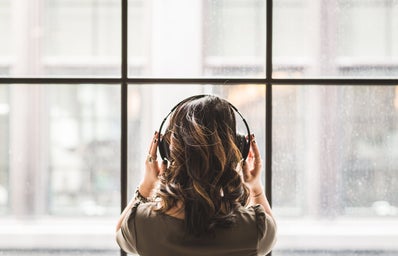You may or may not remember this tweet from Philly-born rapper Meek Mill:
The tweet accuses Drake, the actor-turned-artist, of something strongly forbidden – ghostwriting. Meek Mill’s exploding comment created a heated discussion among hip hop fans. Questions such as, “What exactly is ghostwriting?”, “How could Drake do this to us?” And then the comments that quickly followed: “How dare he mislead his fans into thinking he wrote his own lyrics? Shun him! Shun him for good! Burn him at the stake!”
Yes. It’s true. Drake has ghostwriters. In reality, it may come off as a surprise that R&B singer The Weeknd actually wrote a huge percentage of his critically acclaimed album, “Take Care.” As shocking at this information may seem, Drake isn’t the only artist whose team has hired professional songwriters. The pop scene of the music industry is notorious for this kind of creative process. To properly define the term, ghostwriting is essentially someone creating work for someone else, whether or not the original writer is credited or not. But music isn’t the only industry where ghostwriting occurs. Similarly, politicians have people who write their speeches. Authors hire writers to help with parts of their novel. Graphics in comic books usually have a number of designers rather than one single artist. It’s been known for Mozart to compose music for patrons who wished to be thought of as gifted musical composers. Despite the long and continuous timeline of ghostwriting, a number of people maintain the belief that ghostwriting is wrong and unjustifiable. On the other hand, there are those who uphold ghostwriting to be an important part of the musical process.
Why do some music lovers believe ghostwriting to be such an unforgivable act against true art? Their argument lies at the heart of true creativity and genuine originality. For them, music is supposed to be self-reflective – the whole point is, in fact, to write it yourself and to display individuality. It can be assumed that lyricism means much more to these listeners than production, and there isn’t anything wrong with that. In their eyes, real talent lies in the artists that do it all themselves. They desire musicians that radiate an authentic image, a sense of trueness in their brand. For these fans, ghostwriting is deceptive to those who love music. Artists who don’t hire ghostwriters aren’t some rare breed – there are many in the industry who love to write their own songs and are quite talented at doing so. All it takes is a simple writing credits search.
Contrary to the ghostwriting haters, many believe that the act of having talented songwriters write for artists is extremely useful. According to such music lovers, inspiration isn’t something that can be attained on its own, so having others contribute and collaborate on musical projects enforces a greater quality album and/or track. They hold onto the belief that nothing is 100 percent original – everybody influences everyone, and true artistry comes first from copying the greats.
Besides the general principle of original writing, the topic of performers vs. writers is another important issue that comes up when discussing ghostwriting justification. Some are just better at writing songs. Others are simply more talented at singing/rapping lyrics. Some are performers, some are producers. The two skills are completely different, although one can’t live without the other. Lyrics without performance is simply poetry, and a beautiful voice without good lyrics is just a bad song. So can ghostwriting be that bad if it means a collaboration between two different people who are both talented, although differently, in order to create incredible art?
There is also the issue of giving credit where it’s due. Perhaps not the best analogy, but I think of writing credits in the music industry as if it were plastic surgery. As long as the individual having it done is okay with it and is open and honest to others about having the work done, then it’s perfectly fine. Writing is an important skill in this society and it’s not always easy to create a huge radio hit, so artists should, in my opinion, be honest about who wrote what.
Is ghostwriting justifiable? That’s up to the listener. A majority of the time, most of us won’t even know if the lyrics we hear were actually written by the designated artist or not. But then again, ignorance might be bliss in this situation. I will say, though, that without ghostwriting, we most likely wouldn’t have a lot of the music that’s out there today.



